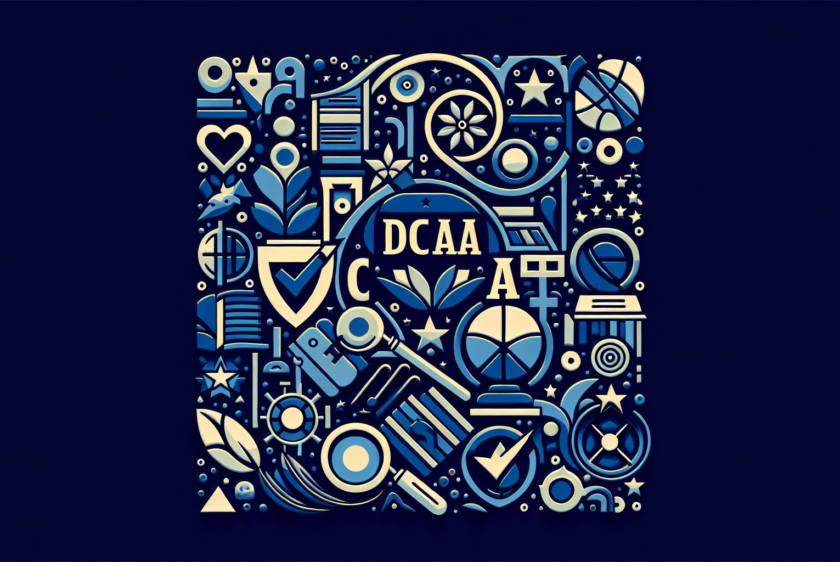Understanding DCAA Compliance Guidelines
Navigating the intricacies of DCAA compliance guidelines is essential for government contractors to ensure adherence to regulatory standards and maintain a successful partnership with government agencies.
Overview of DCAA Compliance
DCAA, the Defense Contract Audit Agency, plays a crucial role in overseeing the financial aspects of government contracts to safeguard taxpayer dollars and maintain transparency in contracting processes. DCAA compliance refers to the adherence to regulations and standards set forth by the agency to ensure the proper allocation of costs, accurate financial reporting, and compliance with contract terms.
Importance of DCAA Compliance for Government Contractors
For government contractors, compliance with DCAA guidelines is not just a legal obligation; it is a fundamental aspect of conducting business with government entities. By adhering to DCAA regulations, contractors demonstrate their commitment to integrity, accountability, and fiscal responsibility in managing government contracts.
Maintaining compliance with DCAA guidelines not only enhances the contractor’s reputation but also mitigates the risks of potential audits, financial penalties, and contract disputes. By following DCAA requirements diligently, contractors can build trust with government agencies, streamline contract processes, and establish a reputation for reliability and transparency.
Ensuring a comprehensive understanding of DCAA compliance guidelines is paramount for government contractors to navigate the complexities of government procurement regulations successfully. By adhering to these guidelines and incorporating best practices in their compliance strategies, contractors can uphold the integrity of their financial processes and strengthen their position as reliable partners in government contracting.
Demystifying DCAA Compliance Guidelines
Navigating the landscape of DCAA compliance guidelines can be a complex and daunting task for government contractors. Understanding the key elements of DCAA compliance and the essential requirements and best practices is paramount to ensuring regulatory adherence and successful contract management.
Elements of DCAA Compliance
DCAA compliance encompasses a set of rules and regulations established by the Defense Contract Audit Agency to oversee and evaluate the financial and operational aspects of government contracts. The elements of DCAA compliance are designed to promote transparency, accuracy, and accountability in contract management. These elements typically include:
- Timekeeping: Accurate recording of labor hours and activities related to government contracts.
- Cost Accounting: Proper allocation and documentation of costs incurred during contract performance.
- Billing and Invoicing: Compliance with invoicing requirements and submission of accurate and timely invoices.
- Financial Reporting: Preparation of financial statements in accordance with government contract regulations.
- Incurred Cost Submissions: Timely submission of incurred cost proposals detailing project costs.
- Documentation and Record-Keeping: Maintenance of detailed records to support contract activities and transactions.
By adhering to these key elements of DCAA compliance, government contractors can demonstrate their commitment to ethical business practices and regulatory compliance. For more in-depth guidance on specific compliance requirements, refer to our article on government contract compliance requirements.
Key Requirements and Best Practices
In addition to understanding the fundamental elements of DCAA compliance, government contractors must also be aware of the key requirements and best practices that govern contract management. These requirements often include:
- Internal Controls: Implementing robust internal control processes to prevent errors, fraud, and non-compliance.
- Segregation of Duties: Clearly defining roles and responsibilities to ensure separation of key functions.
- Training and Education: Providing employees with government contract compliance training to enhance awareness and understanding of regulatory requirements.
- Subcontractor Oversight: Monitoring and evaluating subcontractor compliance to mitigate risks and maintain contractual obligations.
- Audit Preparedness: Proactively preparing for and responding to DCAA audits by maintaining accurate records and documentation.
By incorporating these key requirements and best practices into their contract management processes, government contractors can establish a strong foundation for DCAA compliance and mitigate potential risks associated with non-compliance. For subcontractors seeking guidance on their regulatory obligations, our article on subcontractor regulatory compliance offers valuable insights and recommendations.
Demystifying DCAA compliance guidelines is essential for government contractors to navigate the regulatory landscape effectively and uphold the integrity of their contractual relationships with government agencies. By prioritizing compliance, transparency, and accountability, contractors can build trust, avoid penalties, and ensure the successful execution of government contracts.







